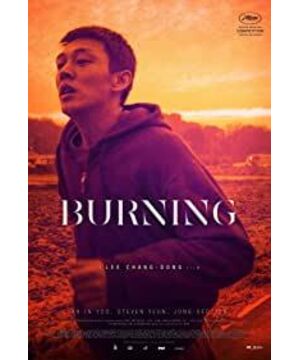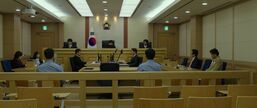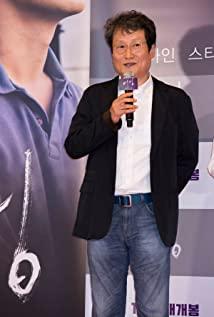I don't quite understand why we are so obsessed with death and the murderer, the movie shows us only the last murder, Jong Soo's murder of Ben.
So let's start with the murderer, the victim, and the important reasons for this murder.
Under various personal speculations, Zhong Xiu may think that Hui Mei's disappearance was killed by Ben, which led to the murder of Ben; but he did not rule out the participation of hatred of the rich and incomprehension of Ben in this murder case. . Whether it's because of Huimi or hatred of the rich, the empty Zhongxiu is the kind of person who will pass on the Big Hunger born of a kind of survival to others in the way of anger and sex. It is very common to have this kind of dismissal, beautify others as the light of life, no matter what she really looks like, the hard pursuit is like Gatsby's obsession with Daisy. If Gatsby finally got the tragic broken dream, then Zhong Xiu got the anger that the emptiness continued to transform into. From Huimei to Ben, everything, including sexual impulses, including anger, is actually Zhong Xiu's transformation of his own survival pressure.
Zhong Xiu's novelist, the setting of this identity is also very interesting. As the creator of the story, he creates characters in the process of writing, as if to give them further meaning to their lives. Putting such a profession on Zhong Xiu is not only for the continuation of the later stories, but also reflects that the profession of novelist itself is a profession that exists to burn the protagonists of his own writing. It is completely consistent with Zhong Xiu's mental state.
Second, there is another male protagonist, Ben.
In the writings of Haruki Murakami, I think he is very attractive, such a discourse about existence and the meaning of burning a warehouse is very philosophical and interesting. The statement about that existence is quoted below:
That is, I am here and I am there. I am in Tokyo and at the same time I am in Tunisia. It is I who condemn, and it is I who forgive. For example, it is like this, there is such a balance. Without this equilibrium, I don't think we can survive. It's like a metal card. Without it, we would fall apart and fall apart. It is because of it that our simultaneous existence is possible.
This part is really interesting. The logic he uses is derived from Hegel. In the battle between good and evil, they support each other's existence, and whoever leaves it loses its meaning. In the book, the presentation is to prove his existence by doing evil and morally condemning himself, and in the movie, he uses the killing of other meaningless people to prove the elimination of his own meaningless pain to himself. Such a balance, such a strange idea, may have come from Descartes' cogito, therefore I am. I suspect that my existence has further proved my existence. Such ingenious logic is applied to all aspects of philosophy little by little, which may be the interest of philosophy.
Keke running on the topic for so long, let's look back at this burning of Ben. If Zhongxiu chose to burn for others to enrich his life, Ben's burning seems to be more egoistic. This kind of burning is based on the fact that Ben does have a homicidal habit, otherwise the charm of this character will be superficial. Continuing from the front, if my assumption is correct, under the premise of such understanding, the girl who seems to be meaningless will be burned as a barn, and then the second generation of his rich life will be used as the background; we find such a girl Man, killing has become his way of self-salvation. Murder becomes redemption, what a terrible thing, but Ben lived in this way. The pain of life brought about by nothingness is boredom, the yawn he often yawns, and the boring and boring expression he has when facing his rich second-generation friends. This kind of emptiness, this kind of boredom, the damage to life seems to be very small, but it is actually very deep and terrible. Unable to find the meaning of his existence, he is immersed in the boring passing time day after day, just like Ben smoking marijuana, knowing that it is harmful, but unable to get rid of such a life. Therefore, the solution he found was to incarnate as a judge, and judge meaningless on the one hand. But his own judgment on himself seems to have only one ending in suicide, and the fear of death makes him treat others as sacrifices. Although in the end he gave himself up, smiling and hugging the killer Zhongxiu at the end, revealing that he was completely freed from the boring world.
Emi was trying to find herself simply because of the emptiness of her life, although she found that dancing could not solve such a problem after returning from Africa, because emptiness is not a personal problem at all. That scene in the sunset, naked dance, sad tears, all could not find a way to cure their emptiness. At the beginning, Emi's pantomime, turning "no" effort into "yes" to deceive herself. That is her expectation for Africa, that kind of dance, she hopes to save herself and find her own meaning through that kind of dance. But she came back disappointed. So there are rich people's playthings, so there is an attachment to Zhong Xiu. She may have thought that she should, like Zhong Xiu, rely on others for her survival, but she received the same disappointing incomprehension from Zhong Xiu as from the rich. Maybe she wants to try again, maybe she's starting to find other ways to escape, maybe she's dead. In short, Emi appeared like a mystery, and disappeared like a mystery. One word description, free.
Three people represent three ways of exploring the meaning of existence. Zhongxiu, who lives for others, tries to burn the whole world without reaching the real counterpart; Huimi, who wants to live for herself, gradually loses her fighting spirit because of the lack of material reality; she tries to prove herself by denying herself by killing people. The essence of existence is timid and cowardly waiting to be "liberated". Both the perpetrator and the victim survived because of others, and went in two directions, but achieved the same goal: killing. Zhongxiu kills for others, Ben kills for himself. In other words, it is possible for Zhong Xiu not to kill, as long as the other party always exists; while Ben takes killing as his way of survival, uses emptiness to resolve his emptiness, and uses emptiness to prove his emptiness. Ben's life is unsolvable, but it is also envied by many poor people. The imbalance of capital caused this ending. Which would you be? Not necessarily all three. Maybe in places beyond the reach of the movie, living in a daze is the real life.
In addition, Li Cangdong is very clear that in order to achieve a story about the meaning of existence in 148 minutes, the external pressure of class conflict is essential. It is looming and sometimes absent, but it is indeed an important reason for the fate of these three people to be entangled together. It is more real than Haruki Murakami's text, exploring the true meaning of life with the charm of light and shadow.
The last and most fundamental question, where does emptiness come from? The movie points to class and commercial society, the novel is empty and empty. The Europeans who have been freed from the religious world have no way to find their true self, and they repeatedly wander about the refugee issue to confirm their authenticity; while the Chinese always like to use their families to relieve this emptiness, but they have been massacred for a long time. The old society that has been destroyed cannot be revived, and the family is disappearing with the rise of the liberal generation. Americans are immersed in their own delusional justice, greedily sucking for profit. However, these methods are about to be broken by technology and capital. Humans who have left the land have lost their fantasy and longing for God. We who were born today cannot follow the way of life in the past, but we cannot fully adapt to the ever-changing technological life. Overspeeding social productivity keeps us on a runaway train with no idea where it's going.
In the future, whether human beings will become extinct or rediscover meaning in war, no one knows. But the emptiness may only be our generation, or only the contemporary people will be empty.
View more about Burning reviews










